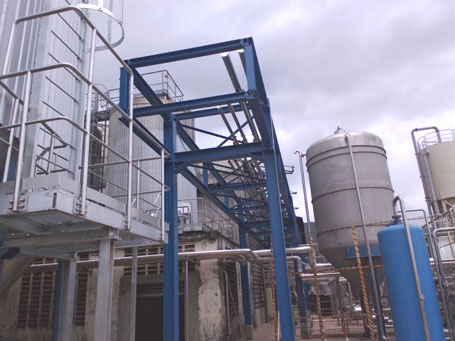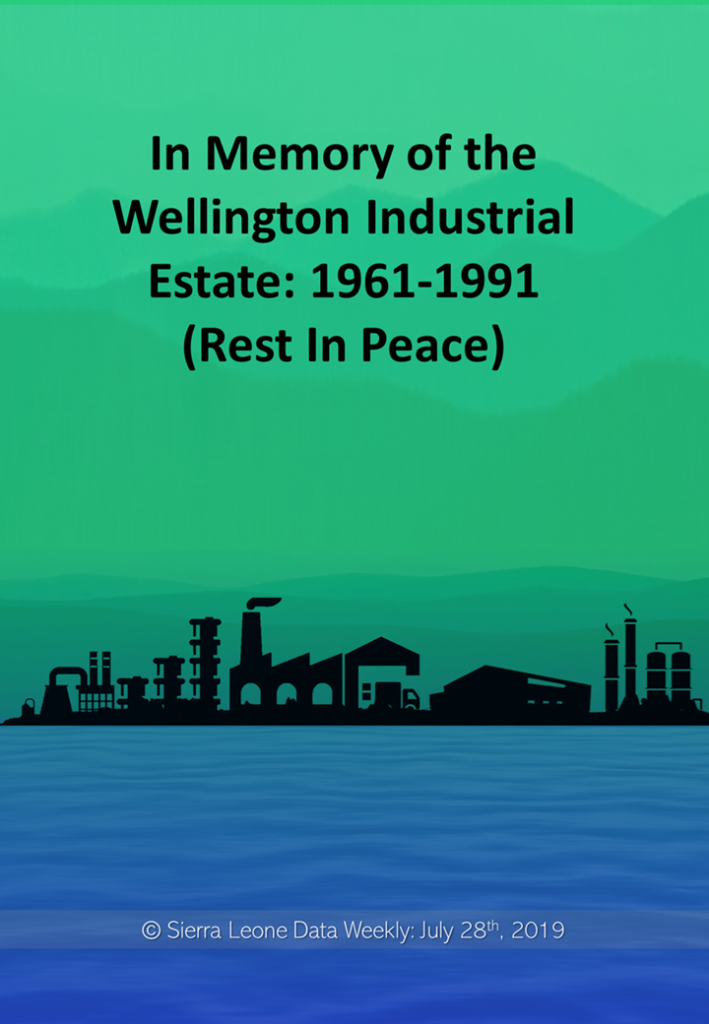
Sierra Leone’s Wellington Industrial Estate – How It Came, Stayed, and Went Away
The “Development of Industries Act” was passed by the Parliament of Sierra Leone in 1960 – the year before independence.
That legislative enactment led to the establishment of the ‘Wellington Industrial Estate’ in the year of independence in 1961.
The estate which was located on 46 hectares of land in the eastern suburb of Wellington in Greater Freetown hosted factories that produced a variety of substituted import commodities, which, up to the eighties had attracted more manufacturers that included the famous cabin bread biscuit, cement, footwear, oxygen, cigarettes, beverages, knitted commodities, prefabricated building materials, furniture, jumbo Maggi, nails, and production plants that processed tuna fish, oyster, palm oil, shrimps, etc.

The estate area also housed an oil refinery which closed in 1992 due to lack of capital for crude oil imports. In 1994, the refinery was sold to Unipetrol of Nigeria when its production capacity had reached 10,000 barrels a day. The market created by the Wellington Industrial Estate was estimated at 5 billion dollars in 1971; and its expansion from 1961 through 1971 was approximated at a Compound Annual Growth Rate (CAGR) of 4.6%.
Together with key provincial industries such as the Forest Industries of Kenema in the east, the Magbosi Fruit factory in the north, and the Bennix Factory of Bo in the south, the Wellington Industrial Estate ushered Sierra Leone through an era which historical economists or economic historians may want to refer to as a period of ISI (Import Substitution Industrialization). The ISI policy of the government was intended to locally produce goods previously imported from industrialized countries and, in so doing, achieve rapid economic growth while diversifying productive structures and empowering the consumption sector through job creation.
The decade of the 80s through the 90s saw a wave of intensified global campaigns for trade liberalization led by the World Trade Organization (WTO) and structural adjustment led by the International Monetary Fund (IMF).
Both campaigns opposed the Import Substitution Industrialization policies across countries throughout Africa, including Sierra Leone.
Sierra Leone joined the bandwagon of the campaign in the late 80s by reducing tariff and non-tariff barriers as well as import duties related to the commodities produced locally. Sierra Leone also devalued her currency, the “Leone”, with the aim of encouraging exporters to boost exports and economic growth and foster the integration of the country into the global economy.
As a direct or indirect consequence of the above policies, the Wellington Industrial Estate was not only unable to compete, but also unable to continue even before push came to shove when the war started in 1991.
The once vibrant Wellington Industrial Estate was suffocated out of existence by trade liberalization, structural adjustment, and war – all anchored on the backbone of bad governance and corruption.



